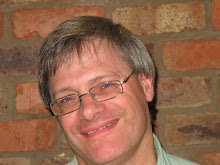Gargoyle by Andrew Davidson is a story of love and loyalty, and a great read.
We never find out the protagonist's name. He refers to himself on occasions as the Gargoyle, on account of the severe burns he received a a result of a road accident. We meet him in hospital as he alternates between telling us of the accident and his treatment, and from an earlier timeline, of his childhood and life before the accident. The dual timeline is a taste of what is to come.
Other than an ability for vivid description and a certain intellectual honesty, he has no virtue about him. He used to spend his days acting in and producing porn movies, he was drinking whisky and had taken drugs when he drove off the road, and spends his time planning how he will commit suicide once he is discharged from the watchful eye of the hospital staff. You may well be tempted to cease reading such bleak and objectionable material, but it is worth persevering with the book.
Somehow, the hospital staff fail to stop a patient from a psychiatric ward slipping into the burns ward, and the enigma that is Marianne Engel comes into his life. Oddball and eccentric, claiming to have been brought up in a convent in Engelthal the early 14th century, and accountable to three masters, the staff let her continue to visit as he has no other friends or family.The relationship grows and eventually the hospital staff agree that he can live with her on his discharge from hospital.
He also wins the respect and friendship of the doctor and the physiotherapist who are treating him, the psychologist who is not. He borrows psychology text books in his quest to diagnose Marianne Engel. Even as the relationship grows, it is always Marianne Engel, never Marianne. Her story grows more fanciful; he also lived in the 14th century, and arrived needing treatment for burns at Engelthal, and their earlier relationship begins. We get two developing love stories, in two different time lines.
Marianne Engel also tells him four other stories, which lay seeds for how the main story will develop. Some of these are the most inspiring and powerful stories, truly remarkable, and would do credit to any short story collection. Even as you wonder how the book will end, we know from these that it is a story of love and loyalty.
In both timelines, 14th century and present day, the suspense builds, and it becomes quite a page turner. After a while we stop questioning how they can have known each other in medieval Germany, and just get drawn in to the story, as does the Gargoyle himself.
When he comes off his dependency on morphine there is a bewildering experience borrowing from Dante's Inferno (just recently written in the earlier timeline) and characters from the four short stories. If it is easy to portray evil powerfully, but hard to portray good, then one section in this chapter proves Andrew Davidson to be a master.
There is something about the pace of the book that is very satisfying. There is adventure and thrill, there is gathering storm, but it is tempered in part by each story being interrupted by the other, and part by the central puzzle. Do we believe Marianne Engel's story? What is the nature of belief and faith? The Gargoyle puzzles these issues throughout the book, but ultimately the story is not one of faith, but of love.
Cliff
8 years ago





No comments:
Post a Comment